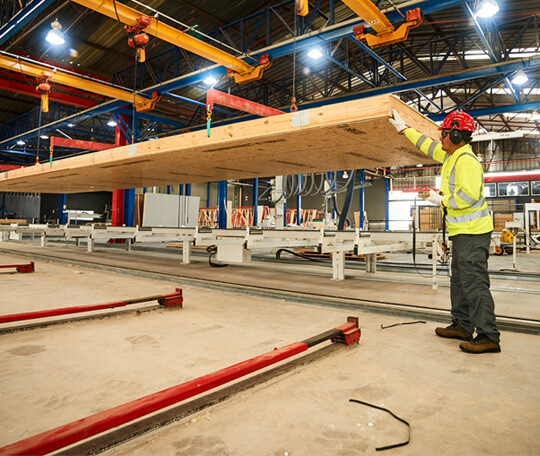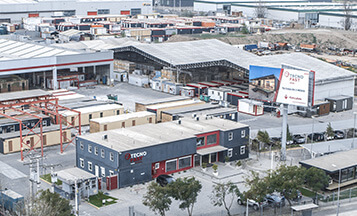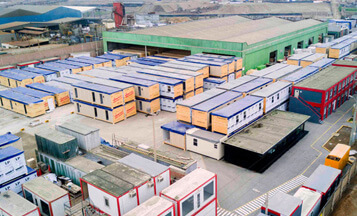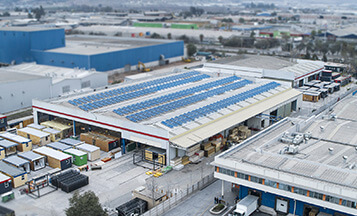
The early incorporation of automation to the manufacturing processes of integral solutions has allowed us to offer the clients a product with the highest standards of design and quality, thus developing a unique installation in the region.
Thanks to a long adaptation and training process for the company’s collaborators, we managed to boost the development of a cutting-edge technology in the industry, integrating the areas of design, automated manufacturing, and company logistics, favoring productive efficiency, control over material costs, and planification of the work in the field.

Modular construction optimizes delivery times by 50%, thanks to the line production process conducted in the plant, which in turn allows for the modular assembly to be put together in parallel to a third work, which in turn allows to minimize the risks that arise due to contingencies in this latter environment.
The modular construction, due to its degree of automation and speed, allows to significantly reduce the costs of a project given by the savings in time resource. A project with a conventional construction time of 12 months, takes 6 months with a modular construction. This difference means that the business will receive 6 additional months of sales flow, which translates into more utilities and less financial costs for the company or, as the case demands it, more productivity or social benefits.
• Being a production process carried out in the plant, there is a quality control better than the one performed on site.
• The productive process has the ISO 9000 certification, unlike most conventional constructions.
• Higher degree of training and specialization of the workers, allowing for their career development.
• The modules must be built in a very robust way to withstand the crane and transportation movements. Each relocation is equivalent to subjecting the module to a 5-degree earthquake for the complete duration of the transportation.
• The modular construction has better thermal and acoustic insulation due to the need for duplicating walls and roofs when generating vertical or horizontal joints between two or more units.
• The materials for the modular construction are stored in warehouses or plants, which prevents bending, dampness or other imperfections caused by keeping the materials outdoors, as it happens in conventional construction.
• The modular construction does not have dampness and breaking problems, as it does occur with concrete or brickwork.
• The construction area has a lower amount of waste, air, water and acoustic contamination, and energy costs.
• Modular construction uses certified wood, which means that the wood production is controlled, restocking every cut tree.
• Further safety for the staff, since they are not exposed to extreme weather and temperature conditions for a long period of time.
• Due to its faster nature, modular construction has a lower impact on the construction site, aside from being dry, tidy works.
• Modular construction is recyclable, since it can be reassembled in a different place, thus becoming a project with the same or a different purpose than the first.
• Modular construction can be easily relocated thanks to the materials used, which can be disassembled and reassembled wherever it is deemed convenient.
• Modular constructions can expand and reduce their constructed square meters, adapting to the required needs.
• It is one of the most versatile construction systems currently available in the market, and allows for installation in any environment and climate condition.

Santiago 2010
The Tecno Fast plant located in Chile has an annual production capacity of 36,000 m2, which translates into a monthly production of 83 modules and an annual production of 996 modules, with an average of 36 m2 each.

Perú 2007
The Tecno Fast plant located in Peru has an annual production capacity of 86,400 m2, which translates into a production of 2,400 modules with an average of 36 m2 each.

Chile 1995
The Tecno Fast plant located in Chile has an annual production capacity of 132,000 m2, which translates into 3,660 modules with an average of 36 m2 each.